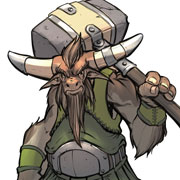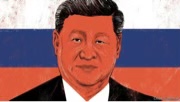(Thread IKs:
dead gay comedy forums)
|
Just gonna put you on ignore, feel free to keep posting it won't bother me none.
|
|
|
|

|
| # ? May 23, 2024 12:24 |
|
Gonna be honest here, I'm a lot more interested to read your thoughts and analysis of the text than just reposts of the text itself (which I could read over at marxists.org myself anyway.)
|
|
|
|
alright, so for the other chapters I think I am just going to summarize and post only the most interesting excerpts. it's just that the narrative drew me in so well that i wanted to share it with other interested people, Trotsky has a very engaging writing style as for this first chapter there really isn't much to analyse, except perhaps the harsh conditions for the workers that toil the farm and the extreme callous and casual nature their suffering is treated by authorities and landlords alike, including Trotsky 's father. Life is so bad out there that even the extremely poo poo exploitative factory work in the city is seen as an undisputed upgrade, as seen in that conversation with the guy that left as an aside, it's interesting that Trotsky 's father is a self made landlord of sorts and falls exactly into the exact class of people the revolution would try to eliminate from the very start
|
|
|
|
Revolutionary leaders often come from the ruling classes. It's more interesting that people expect it to be otherwise.
|
|
|
|
AFancyQuestionMark posted:that was years ago, i regret my words and deeds, i was wrong life is a learning and growing experience 🙏
|
|
|
|
AFancyQuestionMark posted:that's the end of chapter 1, tell me if what i am doing is a super bad idea that shits up the thread or not it�d be better to post quotes with your questions, or overall analysis but yeah just post
|
|
|
|
AFancyQuestionMark posted:that's the end of chapter 1, tell me if what i am doing is a super bad idea that shits up the thread or not Just post a link and then your thoughts on that section? Although maybe if we all posted whole chapters it would encourage more people to actually do the god damned reading
|
|
|
|
i think it might be good to allow some time for discussion in between chapters. maybe add some potential points of discussion or highlight some passages you find particularly interesting or relevant, or ask some questions about a particular passage. maybe a chapter every few days or a week, something like that. this is a generally slow thread so it can take some time for a bunch of crusty old marxists to rouse
|
|
|
|
another minor point that just came to mind about chapter 1 is that there is virtually no mention of the fact that this all takes place in what would later become Ukraine and not Russia "proper", in fact the only reference to this is that the father speaks a mixture of Ukrainian and Russian. probably doesn't mean much, but given the various Ukrainian nationalist movements active in the civil war, you would think it's something that would come up more the family being Jewish is also relatively subdued, though this does get discussed a bit in the next chapter AFancyQuestionMark has issued a correction as of 14:17 on Jun 22, 2023 |
|
|
|
AFancyQuestionMark posted:as an aside, it's interesting that Trotsky 's father is a self made landlord of sorts and falls exactly into the exact class of people the revolution would try to eliminate from the very start i thought this was very interesting as well As a point, though, the revolution (and also in China during the GLF/GPCR) did not focus on murdering landlords en masse---orders of magnitude less deaths than popularized. like the guy said, the reds hated his dad but the monarchists persecuted him. if you have any concept of vanguard, regardless of organization and parties, it's simply the most advanced portion of proletariat, and at every point in development there will be stratification and reaction edit: for those who've read this before or read ahead, is there some theoretical value in this, sharing actual experiences, or is it ultimately self-aggrandizement and a polemic against """stalinists"""
|
|
|
|
Sunny Side Up posted:
there is plenty of self-aggrandizement and polemic, but there are also a lot of first-hand accounts of early revolutionary organizing in the face of tsarist repression, formation of the party, main debates on many issues, the split, the fall of the Second International, etc. also the revolution and civil war stuff of course
|
|
|
|
AFancyQuestionMark posted:there is plenty of self-aggrandizement and polemic, but there are also a lot of first-hand accounts of early revolutionary organizing in the face of tsarist repression, formation of the party, main debates on many issues, the split, the fall of the Second International, etc. i'm curious where he splits or adds to Lenin since Lenin covered all of that pretty effectively and thoroughly.
|
|
|
|
Raskolnikov38 posted:is there a translation of marx that uses real money instead of shillings and pence? having to convert and fractionize money amounts to something that makes sense, makes reading the back half of capital vol 1 a pain is working out the values really that important? man I�m never reading that poo poo. dry theory, history, analysis I�m willing to plow through even if it's translated from one garbage language into another and rendered nearly unreadable in the process, but math isn't something I�m going to subject myself to Fat-Lip-Sum-41.mp3 posted:Revolutionary leaders often come from the ruling classes. It's more interesting that people expect it to be otherwise. well I personally know way more poor people who've accomplished astounding things academically, physically, spiritually, economically, etc. than I do bourgeois class traitors, and I'd guarantee it's the same for all working class people, so it's not that interesting people extrapolate their experience out that way
|
|
|
|
indigi posted:is working out the values really that important? man I�m never reading that poo poo. dry theory, history, analysis I�m willing to plow through even if it's translated from one garbage language into another and rendered nearly unreadable in the process, but math isn't something I�m going to subject myself to some of it is interesting but critically the math problems are extremely basic, it�s the ratio of shillings to pence to pounds that trips me up like it�ll be �the worker is paid 5 pence daily which works out to 2s3d(????) per week�
|
|
|
|
indigi posted:is working out the values really that important? man I�m never reading that poo poo. dry theory, history, analysis I�m willing to plow through even if it's translated from one garbage language into another and rendered nearly unreadable in the process, but math isn't something I�m going to subject myself to 
|
|
|
|
Raskolnikov38 posted:some of it is interesting but critically the math problems are extremely basic, it�s the ratio of shillings to pence to pounds that trips me up if you want to get really esoteric with it, check out bret victor and his work on exploitable explanations https://en.m.wikipedia.org/wiki/Explorable_explanation i bring this up because education is fundamental to marxism. it sometimes feels like people treat capital like a sacred text, and poorly formatted marxist.org pages as some kind of right of passage. so yeah, translation should absolutely include units imo
|
|
|
|
Raskolnikov38 posted:some of it is interesting but critically the math problems are extremely basic, it�s the ratio of shillings to pence to pounds that trips me up the pence:shillings:pounds thing makes more sense as something before the invention of cheap and easy calculators because the customary ratios had more common factors and so could be divided evenly without remainders
|
|
|
|
bedpan posted:the pence:shillings:pounds thing makes more sense as something before the invention of cheap and easy calculators because the customary ratios had more common factors and so could be divided evenly without remainders yep it's hours:minutes:seconds but money
|
|
|
|
you can tell marx isn't great shakes at math because he goes to great trouble over multiple paragraphs to confirm for himself and his reader that, like, ratios and fractions work as advertised. there's a funny footnote by engels about this somewhere in vol 2
|
|
|
|
Ferrinus posted:he goes to great trouble over multiple paragraphs to confirm for himself and his reader that, like, ratios and fractions work as advertised thats called dialectics
|
|
|
|
Ferrinus posted:you can tell marx isn't great shakes at math because he goes to great trouble over multiple paragraphs to confirm for himself and his reader that, like, ratios and fractions work as advertised. there's a funny footnote by engels about this somewhere in vol 2 I assumed this was how all "gentlemanly" level scholarly discourse went at the time. Before specialized language, anyone with an "general education" could write a book on any subject for anyone else with the same, it just takes several thousand pages to explain absolutely everything.
|
|
|
|
Miles Blundell posted:Whats up with "the masses" and what is the ultimate position that they occupy in a socialist state? is this a stupid question
|
|
|
|
Miles Blundell posted:is this a stupid question "the masses" are an important character in a lot of political writing and they are frequently invoked by both socialists and enemies of socialism, or by different kinds of socialists against each other. frequently someone will claim to stand with the cuban/chinese/venezuelan/vietnamese/whatever PEOPLE against the GOVERNMENT of same. this sounds good, but then you have to ask yourself: is there, likewise, a fatal conflict between the american people and the american government? was there one between the people and government of soviet russia? i don't think it makes sense to imagine a government of any kind which somehow rules without, at the very least, the tacit support of The Masses, or at least a plurality/critical mass of same. this means that we can't imagine that either stalin, or hitler, or roosevelt somehow ruled through fear such that the majority of their citizens hated what they were doing but were simply too scared to resist. the actions of each government were simply within basic tolerance for the people doing the farming and manufacturing that allowed those governments to function, even if that tolerance fell short of enthusiastic advocacy this means among other things that The Masses of the modern USA benefit from, or at least don't mind, the regime of insane imperialism abroad and insane police brutality at home, and need to be organized into formations that recognize their long-term interests are harmed by this status quo
|
|
|
|
Miles Blundell posted:Whats up with "the masses" and what is the ultimate position that they occupy in a socialist state? i'd hope that's how it functions but history has shown that it takes a "cultural revolution" to cement those lines of communication and that proletarian control. and to make it effortless like you describe. the key thing is that in every interaction you have in your life with a person or a commodity, the ideology of capitalism is reproduced. like inside the masses (including us) is where the dominant ideology is produced and sustained. so organizing and education will remain essential especially to quell the voice of reaction that's in all of our heads. it may sound farfetched to expect average people to consistently give a poo poo about politics, but imagine if the energy and time put into facebook/nextdoor/whatever was instead sunk into constructive rather than alienating community relationships.
|
|
|
|
brought this question from the Asia thread:Fat-Lip-Sum-41.mp3 posted:Recalling The Long 20th Century: how did the development of capitalism manifest in terms of production in Florence and Genoa? or was it just lending and finance? did the social aspect of production start then and there? I was under the impression that that's what spurred the development of capitalism but don't know enough about workers in Renaissance Italian city states
|
|
|
|
I'm not an expert but I liked Ellen Wood's thesis (in The Origin of Capitalism) that capitalism as we know it really got off the ground in early modern England since they combined the rise of finance with new world colonies in a society that was already more comfortable with buying and selling titles for social status
|
|
|
|
If we're doing historical questions, I'm curious as to how back capitalism goes. Like everyone else here, I've argued with people who confuse capitalism with commerce. I'm specifically curious about the latifundia of ancient Rome. They were certainly privately owning the means of production and operating them for profit, and outcompeting and swallowing up the assets of individual farmers.
|
|
|
|
wouldn't the italian city states be examples of the merchant capital that marx talks about
|
|
|
|
indigi posted:brought this question from the Asia thread: StashAugustine posted:I'm not an expert but I liked Ellen Wood's thesis (in The Origin of Capitalism) that capitalism as we know it really got off the ground in early modern England since they combined the rise of finance with new world colonies in a society that was already more comfortable with buying and selling titles for social status England is the case example of the formation of industrial capitalism, which is where we can definitely say that it took off like a rocket, yes. But of a capitalist mode of production in general we see it much earlier with the growth of the merchant/burgher class post-Black Death, where the dramatic scarcity of labor caused a massive upsurge of its cost (and thus payment). Places with better organized labor structures and relations converted that money into newer means of production: pre-industrial manufacturing is reinvented and better performing than the methods of antiquity, because of the massive value advantage in the hands of specialized labor. The artisan classes in these places start recruiting through their organizations: the unskilled apprentices are put to work on the simpler, easier and more repetitive tasks, while the more experienced artisans work on more difficult ones. A multiplier is found through this process where these manufactories are able to attend demands much higher than their labor power would otherwise suggest: this is the development of the principle of division of labor, which Adam Smith would describe centuries later. However, the conditions to have such manufacturing capability were very limited throughout Europe. Those would be cities large enough to have the infrastructure of all means necessary, with enough population not thoroughly decimated by the plague and a surrounding countryside where the agricultural surplus was such that the aristocracy and peasantry had more value than average to provide. This last bit is important, because we are still knee-deep in feudalism here. So, few places in Europe had those conditions. For example there's Antwerpen, a great strategic port for the distribution of goods, had a merchant class readily able to provide capital to the artisan classes for cloth manufacturing, a center of industry to spring not much later. Parisian guilds start becoming a political force. But it is Italy that has a massive aggregate of those conditions throughout its territory, first and foremost by having a very fair bunch of the best farmland in the continent. Manufacturing pops up in many cities, not just Florence; Venetian and Genoese commercial interests are able to fund pre-industrial development and receive dividends. These ample dividends are able to be capitalized in financial means: credit. Italian credit was cheaper and more accessible because of it being backed by the manufacturing surplus, cutting through the "pre-banker" classes of places like Austria, whose ability to loan money was backed by property of gold and silver mines. Then that credit funded Spain, the Americas were found and modern mercantilism could finally get started.
|
|
|
|
the book i'm reading now Divided World Divided Class makes a case that Capitalism began to develop all over the world in tandem, but reliance on chattel slavery (copious maximally exploited surplus value) is what propelled western europe to the fore
|
|
|
|
indigi posted:brought this question from the Asia thread: Florence is doing great business through the 14th century. It's all about the sheep, which takes us back the Enclosures. There is a massive expansion in the wool trade. Florentine production is processing raw wool or finishing rough products into finer fabrics. Even after their golden age has come and gone, they remain known for very fine wool products. I like the Connections episode that covers a lot of this from the perspective of innovation in textile production. The development of early Capitalism into "High Finance," according to Arrighi, starts when the trade expansion stops. This, he says, is something new. There's a lot of turbulence to cause it: wars, revolts, etc. The Florentine wool industry collapses. The merchants, who still have a great deal of money, turn to international banking - MMprime. Also they fund the arts, because why not. So from this perspective the origin of Capitalism coincides with the establishment of this cycle: MCMprime, followed by falling profits, followed by a shift to MMprime. The idea originates in Florence, and the Genoese gain dominance in the same field afterwards. This is one way of looking at it. Fat-Lip-Sum-41.mp3 has issued a correction as of 17:46 on Jun 23, 2023 |
|
|
|
its the dutch's fault for coming up with shareholders during the age of sail to finance colonial expeditions and intercontinental shipping
|
|
|
|
croup coughfield posted:its the dutch's fault for coming up with shareholders during the age of sail to finance colonial expeditions and intercontinental shipping (aaaaaaaaaaaaaaaaaaaaaaaaaand the slave trade ofc)
|
|
|
|
dead gay comedy forums posted:(aaaaaaaaaaaaaaaaaaaaaaaaaand the slave trade ofc) im fine with that
|
|
|
|
Fat-Lip-Sum-41.mp3 posted:Florence is doing great business through the 14th century. It's all about the sheep, which takes us back the Enclosures. There is a massive expansion in the wool trade. Florentine production is processing raw wool or finishing rough products into finer fabrics. Even after their golden age has come and gone, they remain known for very fine wool products. I like the Connections episode that covers a lot of this from the perspective of innovation in textile production. wasn�t most trade going through the italian city states along the Mediterranean at this time? and the development of naval technology shifted trade routes? im not very well read in this era of history so idk
|
|
|
|
there's a chapter in volume 3 about the historical development of merchant capital, which originally generated profits through arbitrage and actual swindling/robbery but created pressures for places to develop their own manufacturing bases so that they didn't have to rely on these piece of poo poo merchants for various finished goods. of course merchant capital can't singlehandedly cause production to be subsumed under capital, or else that would have happened in the days of sumer or something, but it's certainly one leg of the stool whose other legs are like colonialism, slavery, etc
|
|
|
|
Centrist Committee posted:wasn�t most trade going through the italian city states along the Mediterranean at this time? and the development of naval technology shifted trade routes? im not very well read in this era of history so idk It's due to the flux of eastern trade. Genoa and Venice were the main commercial hubs of Asiatic commodities through the Mediterranean, which is why merchant republics were a thing. Once the Turks take Constantinople, there's a huge upheaval on that system of trade, which is a primary motivator to why Italian capital goes to Iberia in droves: the Portuguese were developing tremendous nautical expertise through access of Arabic knowledges of math, astronomy and engineering, besides know-how in Atlantic seafaring. Thanks to that, they were able to establish trading posts along Northwestern Africa and colonize Madeira and Azores, where the first mercantile plantations were established. Genoa was already invested in Portuguese seafaring even before the Black Plague, but the fall of Byzantium brought an entire new level of financing. As Portuguese efforts advance around Africa, alternative sources for those commodities prove to be a boon to Genoa, as the Mediterranean distribution system readjusts to the new Atlantic influx of trade. After reaching India, the commercial dividends of those journeys become truly spectacular, as the Ottomans can be entirely bypassed through the Atlantic trade. In that moment, places like Milan and Pisa were having a substantial development of manufacturing capabilities to service the Genoese part of the Mediterranean trading system, BUT THEN Spain reached the Americas. The Burgundian Low Countries, which correspond to nowadays Belgium and most of the Netherlands, became Spanish by matter of succession. Antwerpen and Brugge had a deluge of gold and silver to their manufacturing base, which spread around further to places such as Amsterdam and Rotterdam. Through the Low Countries, two other nations that finally got their poo poo together and had something resembling a state started to get their cut of that gold: French guilds provided a huge portion of the industrial goods of the Spanish market, while English manufacturing - without having the advantage of the port of Calais anymore - seized a minor share, but compensated by having benefits with the Portuguese thanks to their long diplomatic history. The Atlantic trade displaced the Mediterranean entirely and shifted the primary flow of capital northwards, in a very neat triangle between Belgium, France and England. It's no coincidence at all that the European powers to emerge were those three: France, in particular, had almost a century of guild expansion and organization of their manufacturing capability, outmatching any other country in the continent. It was Dutch manufacturing that provided Portugal with the means to process sugar in Brazil, with the required dividends being paid. The Iberian powers were so diseased with wealth that it took almost two centuries to realize how utterly compromised they had become and how much of that gold was directly put to the advantage of their adversaries, funding the expansion and development of their colonial enterprises and, later on, forming the basis of their properly industrial revolutions.
|
|
|
|
dead gay comedy forums posted:The Iberian powers were so diseased with wealth that it took almost two centuries to realize how utterly compromised they had become and how much of that gold was directly put to the advantage of their adversaries this seems strangely familiar
|
|
|
|
indigi posted:this seems strangely familiar Not an adversary, but for example, Portugal was crucial for English industrialization. In Brazilian political economy there is this neat tidbit: during the heights of the Brazilian gold cycle, if you check the colonial accounting of gold transported to Lisbon and Porto, then the books of trade of those ports with the Portuguese accounts, then checking the books for Portsmouth and English trade with Portugal, almost all gold transported from Brazil was being sent to England as commercial balance payments. Apparently, some ships were ordered to not even bother unloading and go straight to England after shore leave. What's even more neat is that the value of the gold influx from Brazil to England neatly tracks together with the critical phase of capital accumulation of the industrial revolution there. Or, in other words: as Britain received more gold from Brazil through Portugal because of commercial balance payments (as British industry provided more and more goods to the Portuguese market), that gold provided the means of money and credit to further industrialization, which meant even more British exports, which meant even more gold from Brazil through Portugal. By the end of the gold cycle, Portugal kept a rather minor share of the colonial exploitation! The vast majority went to England as funding for the industrial revolution.
|
|
|
|

|
| # ? May 23, 2024 12:24 |
|
Thank you for posting on the subject, you've piqued my curiosity and it's becoming something I'm interested in learning more about when I get the chance.
|
|
|





















